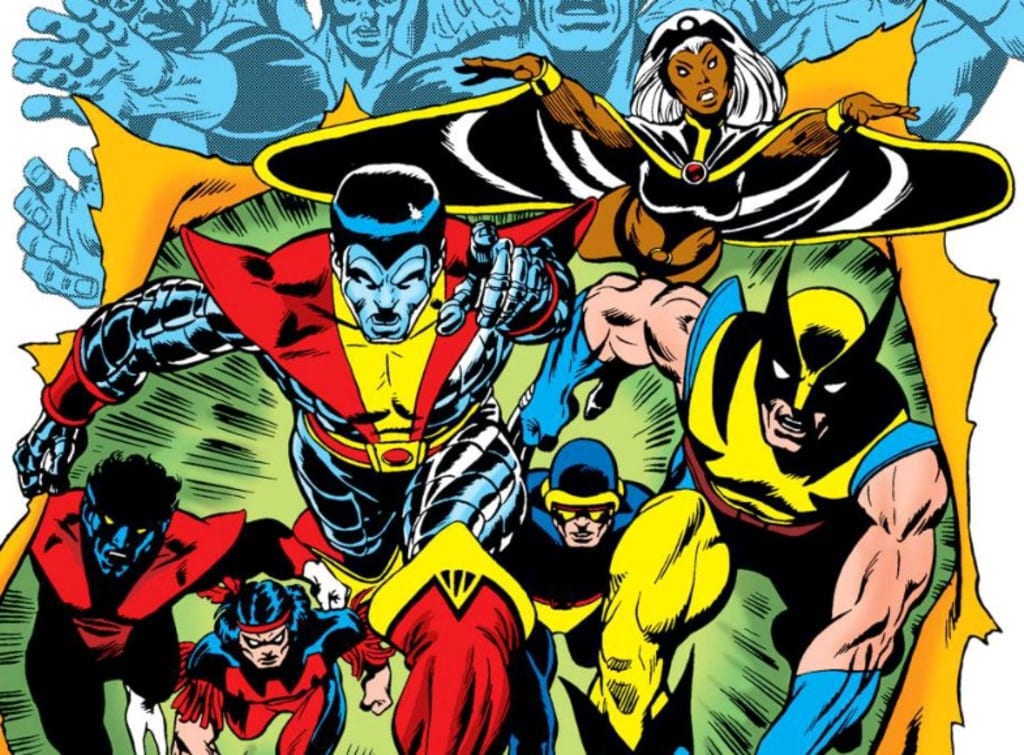
Yesterday, comic book fans across the world were heartbroken to learn of the passing of writer and editor Len Wein. His friends and colleagues have all taken to social media to express their profound sorrow over his untimely death, aged just 69.
There's a sad sense in which this came as no surprise. As Gerry Conway noted in a moving tribute, anyone who spent time with Wein these last few years knew it was coming. And yet, it's still been a shock; Wein had struggled with ill health for decades, and he'd always bounced back. This time, sadly, he didn't.
Len Wein was comic book royalty. In honor of the man's work, I want to take a step back and look at his legacy.
One Of The Greatest Comic Book Writers & Editors
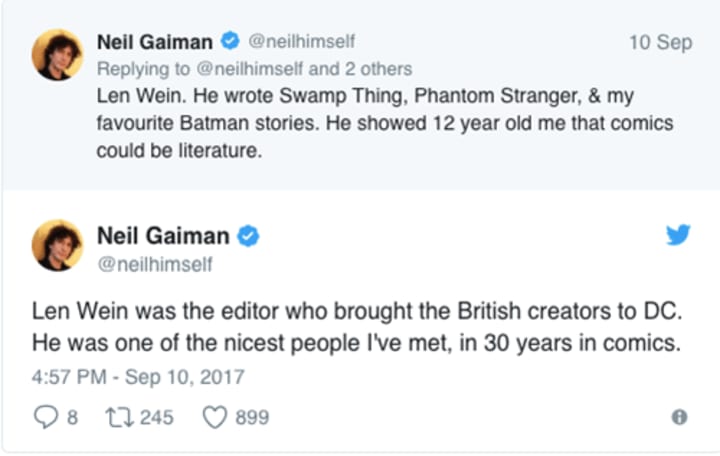
Already a legend by the time he became Marvel's Editor-In-Chief in the 1970s, Wein left his mark on countless careers. As the years passed, he moved on to DC, and there's probably not a single DC character he didn't write or edit. Both rival comic book companies owe so much to Len Wein, and they've made moving statements acknowledging this debt.
In the '70s, Wein and Berni Wrightson updated classic monster tropes in their hugely influential Swamp Thing run while in The Untold Legends of Batman, he told a tremendous, character-driven story that fixed massive continuity problems in the Dark Knight's history. The '80s saw Wein and Dave Gibbons shake up DC lore by appointing John Stewart as the new Green Lantern. As if that wasn't enough, Wein also made waves as an editor, overseeing The New Teen Titans, Crisis on Infinite Earths, and even Alan Moore's Watchmen — a book that transformed the entire comic book industry.
It's no surprise, then, that the more touching anecdotes have come from the writers who worked for Wein, and found themselves becoming his friends. Take J. M. DeMatteis, who remembers walking into Wein's office in 1979;
"There are some writers whose work you admire, but then you meet them and it’s impossible to make the leap from the words on the page to the person across the table: there seems to be some great cosmic disconnect—and, yes, a great disappointment, as well. (It’s unfair to expect a writer or actor or musician to somehow be the embodiment his art—the work alone should be more than enough—but we hope for it nonetheless.) With Len, though, the man and the work were one."
DeMatteis remembers Wein as an editor who taught through encouragement and enthusiasm. He didn't tear you down; he built you up. Fans also know that Wein was gracious enough as an editor to give Alan Moore the opportunity to completely redesign his beloved Swamp Thing, a character Wein had played a major part in shaping. That alone is testimony to Wein's tremendously gracious attitude, a sentiment that's been repeated countless times on social media in the last few days; Wein is remembered for his gentleness, his enthusiasm, and his unrelenting positivity. As a result, he earned a place in the hearts of so many writers.
How many of the greatest comic book writers worked with Len Wein? What impact did he have on the characters you know and love? It's impossible to calculate. There's probably no superhero in #Marvel or #DC comics who hasn't been shaped in some way by Wein.
The X-Men's Second Genesis
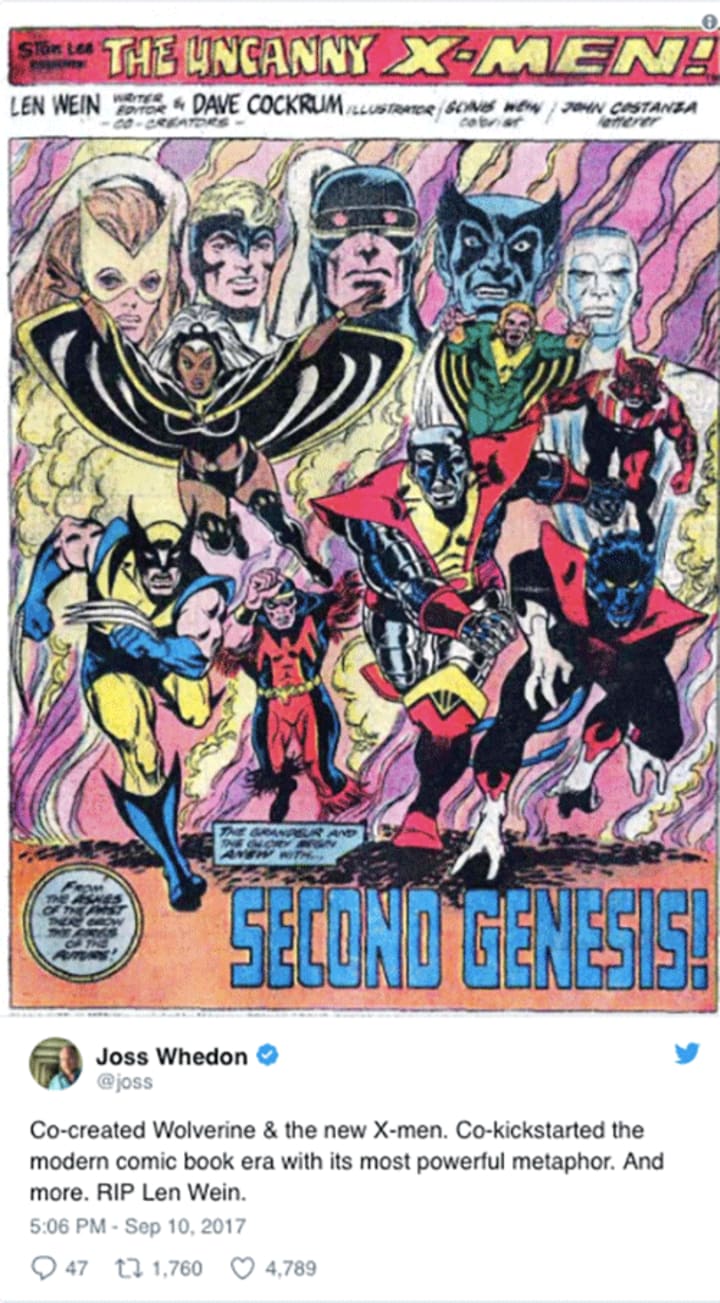
Let me give you one of the best examples; the X-Men. The world may be heralding Wein as the co-creator of Wolverine, but X-Men fans know he did so much more than that. Before Wein, the X-Men were one of Stan Lee's least successful ideas. He'd originally came up with the concept of mutation as a quick-fix to avoid writing more origin stories! But in 1975, Len Wein and Dave Cockrum relaunched the X-Men in a completely different way and in doing so, they made comic book history.
The "Second Genesis" X-Men were an international team, counting a demonic German teleporter, an African weather goddess, and a Russian man of steel among their number. Themes of persecution and identity were carefully restored to the X-Men mythos, laying the foundation for everything writer Chris Claremont would go on to build. Every character and concept was iconic in their own right, and over the next few decades, the X-Men franchise would grow from strength to strength, all because of Wein's influence.
You thought Professor Xavier created the X-Men we know today? No, Len Wein did it.
A Legacy Of Beautiful Character Work
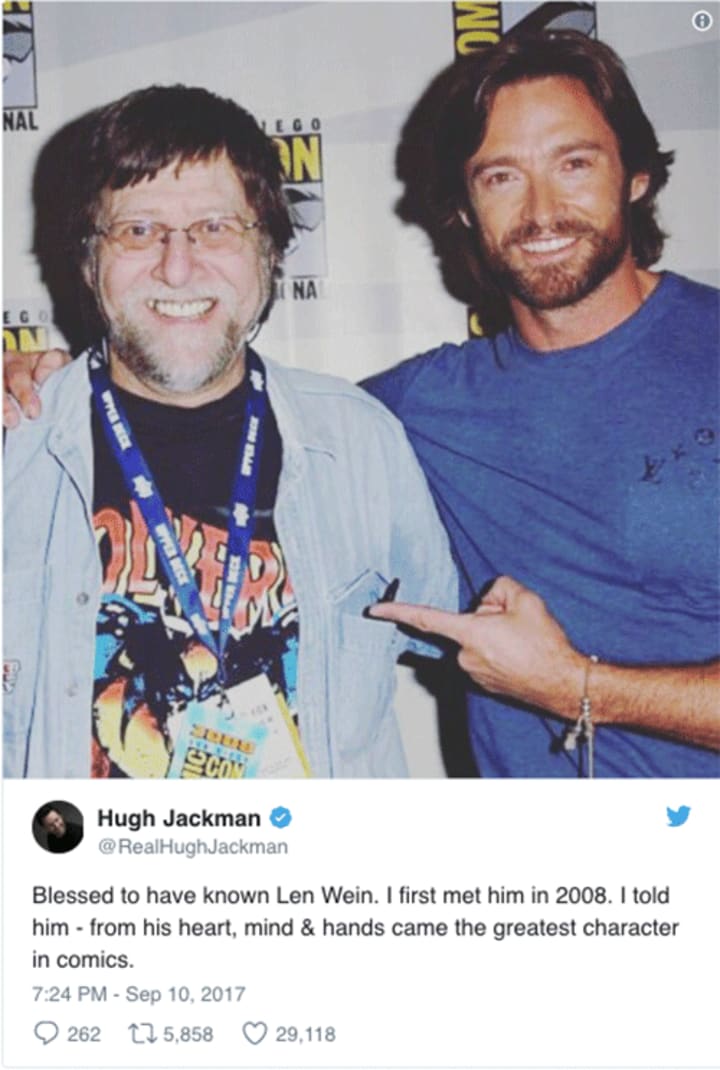
There's a reason why Wein had such a powerful influence and it's because he understood the importance of characterization. DeMatteis noted, "the hallmark of a Wein story wasn’t the action, it was that... beating heart." Wein's stories were rich in characterization, and as an editor, he encouraged writers to tell stories that were just as focused on this essential component.
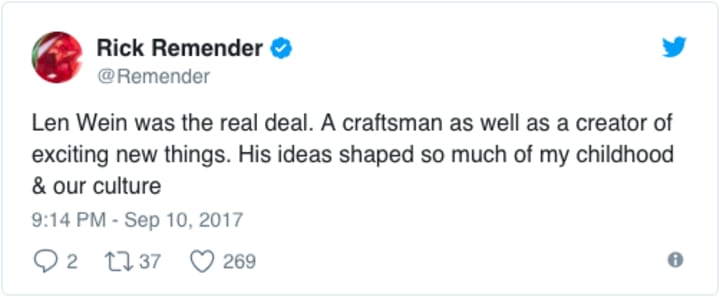
Take for example, Incredible Hulk #182. The issue before had introduced readers to Wolverine, but I think #182 is the more remarkable tale. It's a one-issue plot, 'Between Hammer and Anvil,' that follows two escaping prisoners who receive super-powers after they unwittingly help an alien. Meanwhile, the Hulk has stumbled across a wandering man named Cracker Jack Johnson who doesn't fear the Green Goliath. As a result of this, the two actually develop a friendship. There's humor a-plenty, not least when Cracker Jack gives the Hulk a fork to eat with; the Hulk chews it, and comments that it "tastes funny". In a tragic twist though, it turns out that one of the aforementioned crooks is actually Cracker Jack's son who dies following a confrontation that goes badly wrong.
What a beautiful, poignant issue. It combines tragedy and comedy, just as all the best writing does. Incredible Hulk #182 is a classic of the genre, not least because of the moving conclusion. Cracker Jack had taught the Hulk to write and at the issue's close, he uses that skill to inscribe his name upon the man's tombstone. It's impossible not to be moved.
This isn't one of the most famous issues written by Len Wein, but it encapsulates the writer's skill beautifully in just one short story.
This week, the comic book industry lost one of its greatest and as a result of this, many of the best comic book writers and artists are reeling in heartbreak. As someone who grew up loving classic comic books, I just want to add my own voice to the sorrow and share how Len Wein left a powerful mark on my life as well. He created concepts and characters that resonated with me, that helped me understand the world, that taught me the importance of heart. He encouraged the writers who would go on to shape my childhood through their stories.
I can only offer my condolences to Len Wein's friends and family at this time.
[Sources: Gerry Conway, J. M. DeMatteis, Mark Evanier]
About the Creator
Tom Bacon
A prolific writer and film fan, Tom has a deep love of the superhero genre.


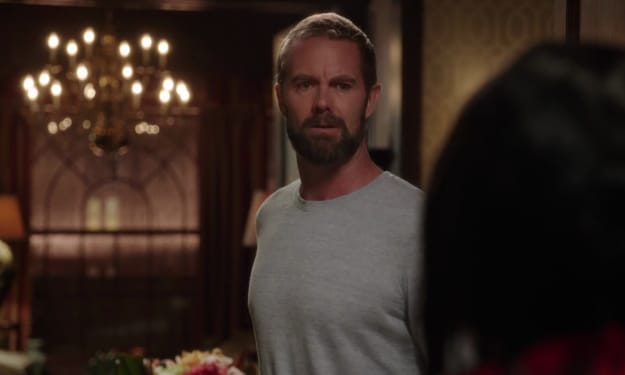



Comments
There are no comments for this story
Be the first to respond and start the conversation.